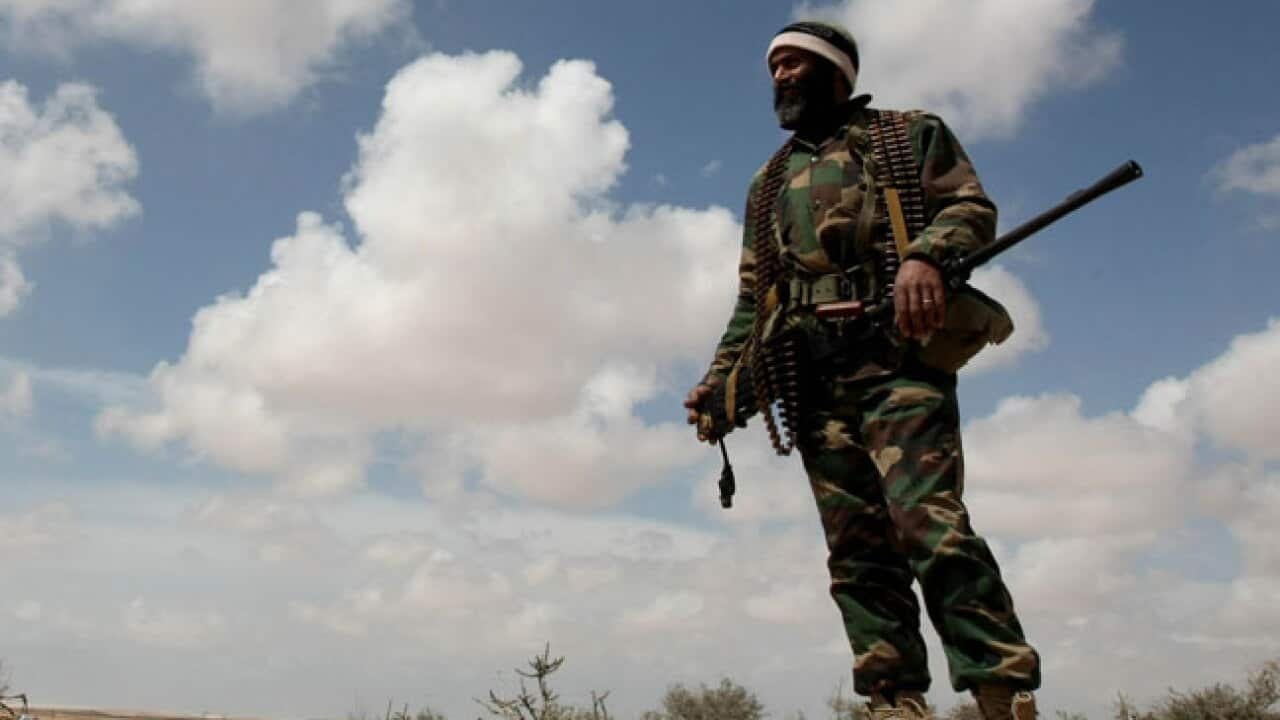France and Italy joined Britain on Wednesday in sending military advisers to insurgent-held eastern Libya, as Tripoli warned that foreign boots on the ground would prolong the conflict.
In Geneva, meanwhile, the UN human rights chief slammed the Libyan regime for the alleged use of cluster bombs in the besieged city of Misrata, saying such attacks on densely populated urban areas could be international crimes.
Rebel leaders in Misrata desperately pleaded for foreign soldiers to help them battle Libyan leader Moamer Gaddafi's forces, who have been pounding the city for more than six weeks in fighting a doctor said had claimed at least 1,000 lives.
But the three European nations committing handfuls of troops to east Libya stressed they were being sent merely to advise the rebels on technical, logistical and organisational matters and not to fight.
'Advice only'
In Paris, France's foreign ministry spokeswoman said: "France has placed a small number of liaison officers alongside our special envoy to Benghazi who are carrying out a liaison mission with the TNC.
"The precise objective is to give the TNC essentially technical, logistical and organisational advice to reinforce the protection of civilians and to improve the distribution of humanitarian and medical aid," she said.
She was referring to the rebel Transitional National Council, which so far has publicly rejected any suggestion of foreign troops on the ground as NATO warplanes enforce a US-mandated no-fly zone designed to protect civilians.
Government spokesman Francois Baroin said "fewer than 10" officers are involved, and repeated France's position: "We are not envisaging troops on the ground, in any shape or form."
The announcement came the day after France's main ally in the drive to help rebels, Britain, said it would send advisers to help organise the stalled rebellion.
UK sends advisors
British Foreign Secretary William Hague said London would send 12 military advisers to eastern Libya, but that they would not be involved in training or arming the rebels, or help in planning operations.
"They're not boots on the ground; this is not British ground combat forces going in ... There is going to be no ground invasion of Libya," Hague told BBC television.
Italy's Defence Minister Ignazio La Russa, meanwhile, said his country would also send 10 army advisers to aid the rebels. "There is a clear understanding that the rebels have to be trained," La Russa said.
Libya was an Italian colony from 1911 until World War II and has retained close ties with the North African state. Italian energy major ENI is the top foreign oil producer in Libya and Italy is Libya's top trade partner.
US supports plans
In Washington, Barack Obama's spokesman said the president supports the decision by allies to send military advisers to aid Libyan rebels but has no plans to put US "boots on the ground."
A senior American diplomat, meanwhile, told lawmakers in a letter obtained by AFP on Wednesday, that Obama plans to provide the rebels with up to $25 million in urgent, non-lethal aid.
Libyan Foreign Minister Abdelati Laabidi told the BCC that the presence of any foreign troops in Libya would prolong the conflict.
"We think any military presence is a step backwards, and we are sure that if this bombing stopped and there is a real ceasefire we could have a dialogue among all Libyans about what they want -- democracy, political reform, constitution, election," Laabidi said.
"This could not be done with what is going on now," he said, adding that if the bombing stopped, after six months there could be a UN supervised election that would cover "whatever issue is raised by Libyans."
Seif al-Islam, a son of Gaddafi, said he was confident the rebellion would fail.
"I am very optimistic and we will win ... The situation changes every day in our favour," the leader's son said on his country's Allibya state television before a group of about 50 people.
Seif vowed the regime would "not seek revenge" against the rebels fighting to oust Gaddafi.
But he warned that "the use of weapons and force will only be met by force and those who cross the four red lines, set in 2007 (Kadhafi, Islam, state security and national unity) will have to bear the consequences".
The bombardment of Misrata continued on Wednesday, with loud explosions heard mid-afternoon following a night of heavy fighting.
Journalist killed
Mortar fire killed a foreign journalist and wounded three more, one of them seriously, an AFP reporter learned at the local hospital.
AAP identified him as Oscar-nominated war photographer and film director, British-born Tim Hetherington.

